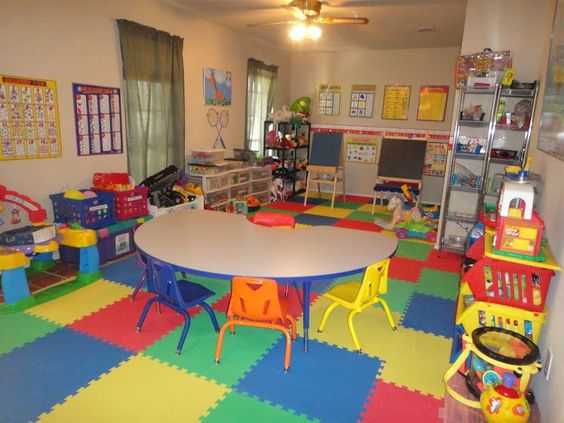Classifications
-
 Nurseries
Nurseries
-
 Schools
Schools
-
Children's essentials, clothing, and toys
-
 skills development
skills development
-
 Educational center
Educational center
-
 Health Care
Health Care
- Radiology centers
- Psychological and family counseling centers
- Pediatric surgeries
- Pediatric surgeries
- Pediatric Dentists
- Dental Clinics
- Child Behavior Doctors
- eyes doctor
- eyes doctor
- Beauty clinics
- Physical therapy
- Endocrine glands and sugar
- Speech and behavior modification
- Psychiatrists
- General Surgery
- Tumor surgeries
- Pain and spine treatment
- Ophthalmologists
- Obstetricians & Gynaecologists
- Bariatric Surgery
- Cosmetic & Plastic Surgery Centers
- Pediatric Ear, Nose And Throat
- Radiology
- Urologist
- Kids Doctors, Pediatricians
- Hospitals
- Pharmacies
- Cardiovascular diseases
- Therapeutic Nutrition Doctor
- Neurologist
- Gastroenterologist & Hepatologist
- Orthopedist
- Dermatologist
- Chest and Respiratory
- Internist
- Labs
-
 Toys
Toys
-
 Kids Activities
Kids Activities
-
 Trading, Stores, commercial services
Trading, Stores, commercial services
- Restaurants
- Information Technology
- Electrical Tools
- jewelry stores
- printing press
- Accounting
- trading and supplies company
- Fashion
- "A company specialized in building swimming pools"
- Firefighting Systems Companies
- *Montessori Toy Stores*
- Wooden supplies
- diverse
- sanitary ware
- Car showroom
- Information & Technology
- Houseware
- Air conditioning & Water filter
- Uniform Companies
- Car Showrooms
- Meat and poultry companies
- Kitchen and hotel equipment companies
- Modern paint company
- Kids Aria
- real estates
- A company for iron, machinery, tools and modern metals
- Candy stores and sweets supplies
- Anti-bugs
- Companies mattresses
- Uniforms and furniture
- Car Services
- Underwear and home wear
- Printing and advertising
- Decorations and interior designs
- security systems
- Modern lighting companies
- Clubs and sports centers
- Car accessories
- Clothing, toys and accessories
- Ceramic & Porcelain
- healthy tools
- armored doors
- Motorcycle Shows
- veterinary center
- Beauty Center
- Beauty Center
- Law Firm
- Glass and Securit Showrooms
- Coffee shop
- central air conditioning company
- central air conditioning company
- Insect Control
- Anti Bugs
- commercial
- Furniture
- Elevators companies
-
 Nursery Management System
Nursery Management System
-
 Schools&Nurseries; Suppliers &Services;
Schools&Nurseries; Suppliers &Services;
-
 Kid Special Needs
Kid Special Needs
-
 self development
self development
-
 Kids & Mums Wear
Kids & Mums Wear
-
 Beauty Centers & Spa
Beauty Centers & Spa
-
 Electrical Appliances
Electrical Appliances
-
 Restaurants
Restaurants
-
 Pets
Pets
-
 Stationery
Stationery
-
 optical center
optical center
Menu
Welcome Egypt Kids Directory
Sign in
Sign in

How to Set Limits for Your Child Without Being Too Strict
Setting limits for your child is important for their safety, well-being, and development. However, it is also important to avoid being too strict. Strict parents often have children who are rebellious, withdrawn, or anxious.
Here are some tips on how to set limits for your child without being too strict:
- Be clear and consistent with your expectations. Children need to know what is expected of them in order to behave appropriately. Make sure your rules are clear, concise, and age-appropriate. Be consistent with enforcing your rules, even when it is difficult.
- Explain your reasons for setting limits. Children are more likely to follow rules if they understand why they exist. Take the time to explain to your child why you have set a particular limit.
- Give your child some choices. Children need to feel like they have some control over their lives. Even when you are setting limits, try to give your child some choices. For example, instead of saying "You can't play video games until you finish your homework," you could say "Would you like to finish your homework first, or have dinner first?"
- Be flexible. Sometimes, it is necessary to be flexible with your limits. For example, if your child is sick or tired, you may need to let them stay up past their bedtime.
- Use positive reinforcement. When your child follows a limit, be sure to praise them. This will help them to learn that following rules has positive consequences.
- Avoid using punishment. Punishment can be effective in the short term, but it can also have negative long-term consequences. Children who are punished frequently are more likely to be rebellious and aggressive. If you need to discipline your child, try to use positive discipline strategies, such as time-outs or natural consequences.
Here are some additional tips:
- Build a strong relationship with your child. Children who feel loved and respected by their parents are more likely to cooperate. Make time to talk to your child, play with them, and show them that you care.
- Be a good role model. Children learn by watching the adults in their lives. Be a good role model for your child by setting a good example and following the rules yourself.
- Be patient. It takes time and patience to teach a child how to behave appropriately. Don't get discouraged if your child doesn't get it right away. Just keep being consistent and loving, and they will eventually learn.
 عربي
عربي








